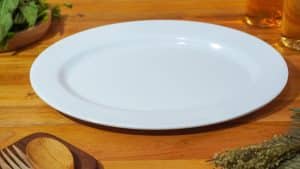Worried you can’t build muscle without meat? Think again. With the right foods and strategy, you can make serious gains on a plant-based diet. The key? Choosing high-quality plant-based proteins for muscle gain — ones that provide a strong amino acid profile and enough leucine to trigger growth.
Let’s break down the best options, how much you need, and how to use plant-based proteins to maximize your results.
What Makes a Plant Protein Good for Muscle Growth?
To trigger muscle growth (hypertrophy), your protein source must:
- Contain all 9 essential amino acids (complete protein)
- Deliver at least 2–3g of leucine per serving
- Be digestible and bioavailable
- Fit your total macronutrient and calorie goals
Plant proteins can meet these criteria when combined strategically or chosen from complete sources.
1. Soy Protein
- Why it works: Complete protein, rich in BCAAs
- Leucine: ~2.5g per 25g protein
- Best for: Post-workout shakes, bulking, cutting
Soy is king in plant-based muscle building. It rivals whey in amino acid content and stimulates muscle protein synthesiseffectively.
2. Pea Protein
- Why it works: High in lysine and iron
- Leucine: ~2g per 25g protein
- Best for: Blends, smoothies, weight gainers
Often paired with rice protein to balance its methionine content, pea protein is a digestible and allergy-friendly option.
3. Hemp Protein
- Why it works: Contains omega-3s and fiber
- Leucine: ~1.5g per 25g protein
- Best for: Daily shakes, gut health
Though lower in leucine, hemp provides whole-food benefits including fiber, iron, and magnesium — great for overall recovery.
4. Brown Rice Protein
- Why it works: Complements pea for a full profile
- Leucine: ~1.8g per 25g protein
- Best for: Pre-bed shakes, fat-loss phases
Combine it with other sources for balance. It’s easy on digestion and low allergen, making it ideal for sensitive stomachs.
5. Quinoa
- Why it works: Whole food, complete protein
- Protein: 8g per cup (cooked)
- Best for: Meal base (salads, bowls)
Quinoa is a seed masquerading as a grain. While lower in total protein, it’s a great carb-protein combo for meals.
6. Seitan (Wheat Meat)
- Why it works: Very high in protein (25g per 3.5 oz)
- Leucine: ~2g per serving
- Best for: Meal prepping, bulking
Made from wheat gluten, seitan is dense and chewy — a favorite for plant-based bodybuilders aiming to hit macros fast.
How Much Plant-Based Protein Do You Need?
Aim for 1.6–2.2g of protein per kg of body weight (0.7–1g per pound). For a 150 lb (68 kg) athlete, that’s ~110–150g/day.
Split your intake across:
- 3–5 meals or shakes daily
- Include ~25–35g protein per meal
- Add 2–3g of leucine per meal to maximize MPS
How to Combine Plant Proteins for Maximum Gains
Certain plant sources are low in one or more essential amino acids, so combining them ensures you hit all nine:
| Combo | Result |
|---|---|
| Pea + Rice | Complete protein profile |
| Lentils + Quinoa | Full amino acid spectrum |
| Nuts + Legumes | Balanced macros + protein |
Supplementing with BCAAs or leucine around workouts may also help optimize results for those on strict plant-based diets.
Key Takeaways
- Plant-based proteins for muscle gain can be just as effective as animal proteins when chosen and combined wisely.
- Focus on complete proteins like soy, pea + rice, or quinoa.
- Aim for 25–35g protein per meal with at least 2g leucine to maximize muscle protein synthesis.
- Don’t forget about total calories, training volume, and recovery — they matter just as much as protein source.
Read Next
References
Join the Faith & Fitness Family
Subscribe now and get exclusive access to Bible-based fitness content and more!
Bonus: iPhone users get a 14-day free trial of our Faith & Fit workout app!
📩 Important: Please confirm your subscription within 7 days. Unconfirmed emails will be removed to help prevent spam and ensure we only send content to those who want it.
👉 Stay strong in faith and fitness — subscribe today!






